PRINCE framework reenvisions distance learning
- July 6, 2020
- By Molly Cruitt
- 4 minute read
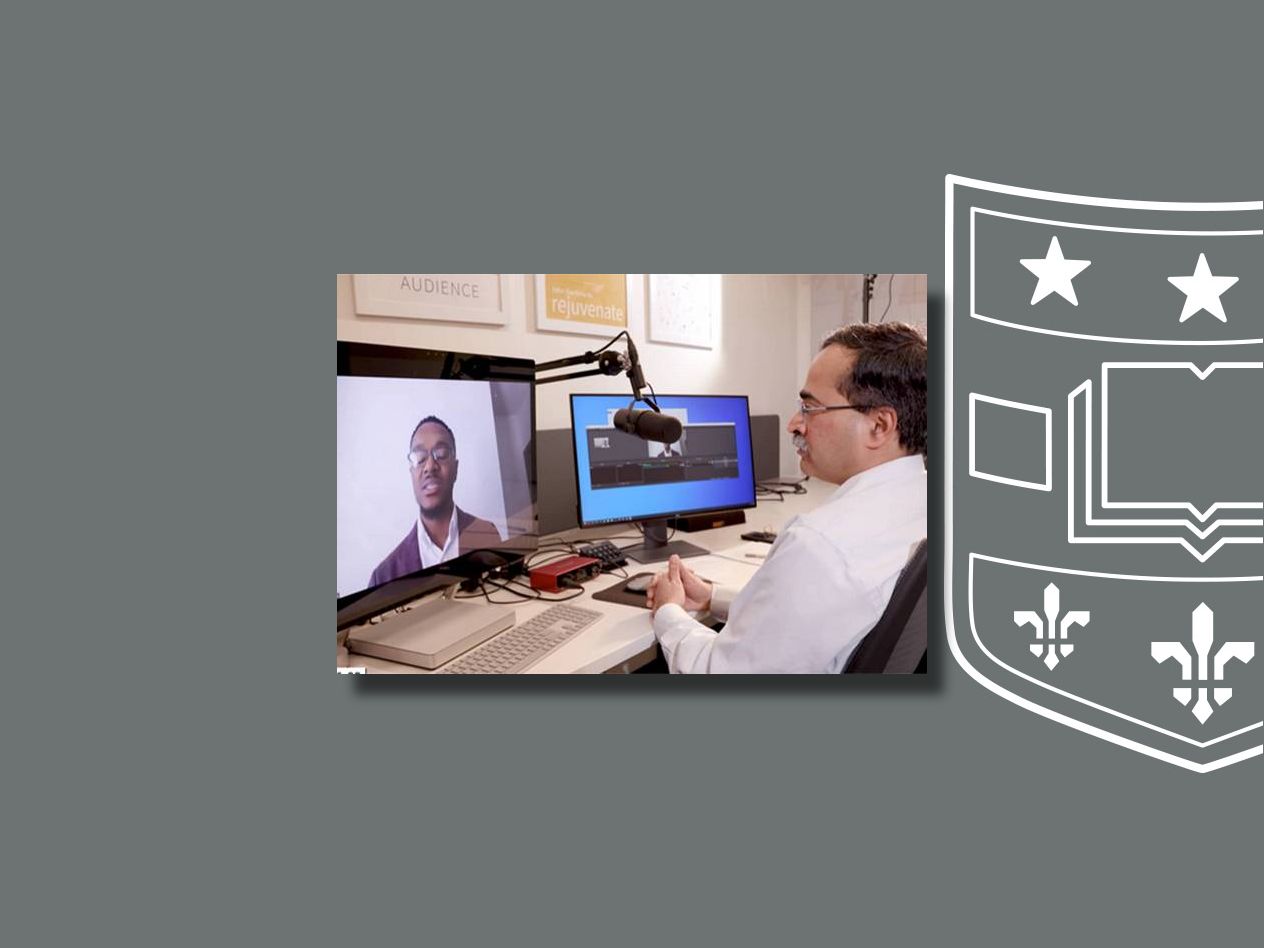
Distance learning has a bad reputation. But WashU Olin’s Ray Irving is on a mission to change that by changing online learning, for good.

The director of WashU’s Center for Digital Education developed the PRINCE framework in his previous role as director of eLearning at the Warwick Business School.
What started as a mnemonic device developed when Ray needed a handy way to present his vision of distance learning has since become a schema that guides his work with faculty members in the creation of online coursework.
Now, he’s in the process of implementing the framework for courses at WashU and Brookings. When Olin professor Paul Paese taught his first ever online class with Irving’s help, a student called it “the best online learning experience I’ve ever had.”
“It’s about delivering the best online experiences that we can,” said Irving. He breaks down his framework into six key components: Personal, Rich, Interactive, Networking, Communication and Engaging.
Personal—and people—and place
Irving insists his courses are fundamentally not about state-of-the-art technology. They’re about having a personal experience with the faculty and the school.
“Every single module, the faculty member speaks to the camera—and it feels like they’re speaking to you.” Irving places faculty members in locations that show off the WashU experience, so they feel like part of the community.
And it works. In a course Irving developed at Warwick, one student reflected that—though he’d never met the professor—“I feel him to be my friend now.”
Rich (and varied)
Irving brings depth to the classroom through interviews with key stakeholders across industries, whether through an on-site, fully produced interview or with the help of Skype or Zoom.
A supply chains course in Warwick got to see the inside workings of a distribution center for a massive UK retailer, including an interview with the center’s manager and a tour of the shop floor, without ever leaving their homes. At Olin, professor Yulia Nevskaya tasked the CDE with producing an interview with Balto’s founder, Marc Bernstein, from his office in the TREX building in Downtown St. Louis.
“Online content gives us access to people, wherever they are in the world,” explained Irving.
Interactive and Innovative
Using online simulations, self-assessments, cases and debates, Irving brings the classroom experience to life and allows students to interact with their faculty members, share their own thoughts and grasp complex concepts.
One behavioral science faculty member created an online experiment to help his students grasp risk management.
He and Irving came up with Grab or Gamble, a game that let students test how they’d react when given the chance to win large sums of money.
“And the students say, after I participated in this, I can understand how risk really works. I’m more risk-averse as I thought,” said Irving.
Networking
“Knowledge sharing, both in terms of professional and academic knowledge, is an absolute core part of getting an MBA,” Irving said. And that includes an online MBA.
Irving fosters networking opportunities for students by bringing together teams of students that are intentionally diverse and assigning group projects. A group project might work much like in a traditional class setting—but the teamwork and innovation required from a multinational team creates a richer product and fosters connections within the cohort.
Communication
Irving views his framework as a way for richer, fuller communication to happen, particularly for students with different learning styles.
Irving’s use of asynchronous experiences like chat rooms, recorded videos and discussion boards, plus synchronous course experiences through Zoom sessions, allows for group communication while also giving students the time needed to reflect and fully form their thoughts and arguments—and it can all be done at the student’s own pace.
Engaging
Irving’s framework exists with the goal of making online learning engaging.
“It requires investment to make this work—from the faculty and from the school. But when you put in the work, you can make an engaging, immersive online-learning experience,” Irving said.
And at Olin, Irving is working to turn his PRINCE framework into a PRINCESS—adding the elements “smart” and “simple.” He’s creating a system called learn.WashU that watches out for students who aren’t progressing in their coursework and allows for earlier intervention and help. Above all, the platform is easy to use and intuitive to understand.
At the end of the day, Irving expects the product he provides to be the opposite of what one might expect from distance learning: “You turn the old system on its head. It’s no longer impersonal and text-heavy. It’s personal and varied. It’s interactive, not isolating. You’re part of a network, and you’re connected to the institution. That’s what PRINCE is all about.”
The PRINCE Framework
Changing online learning, for good.
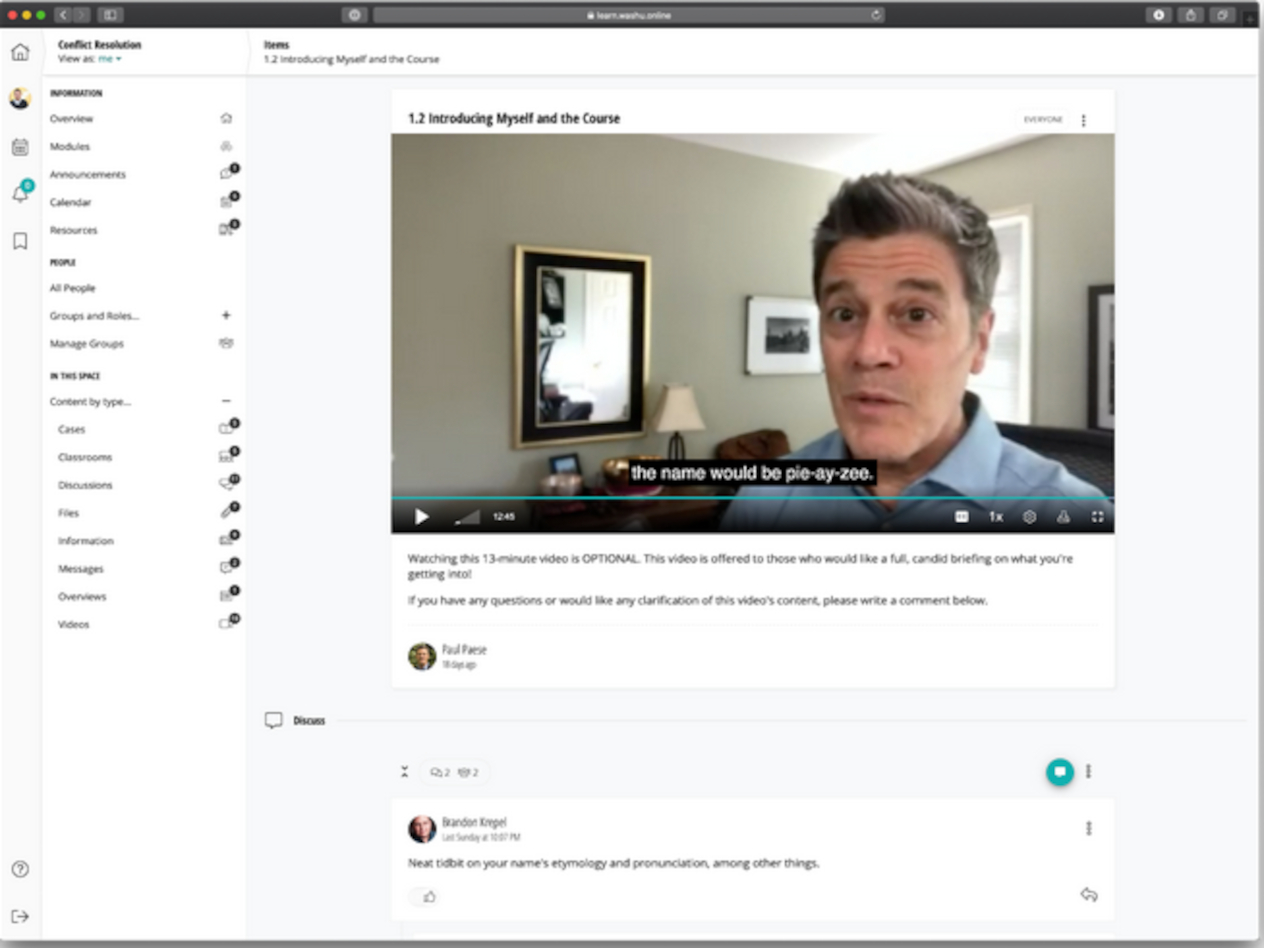
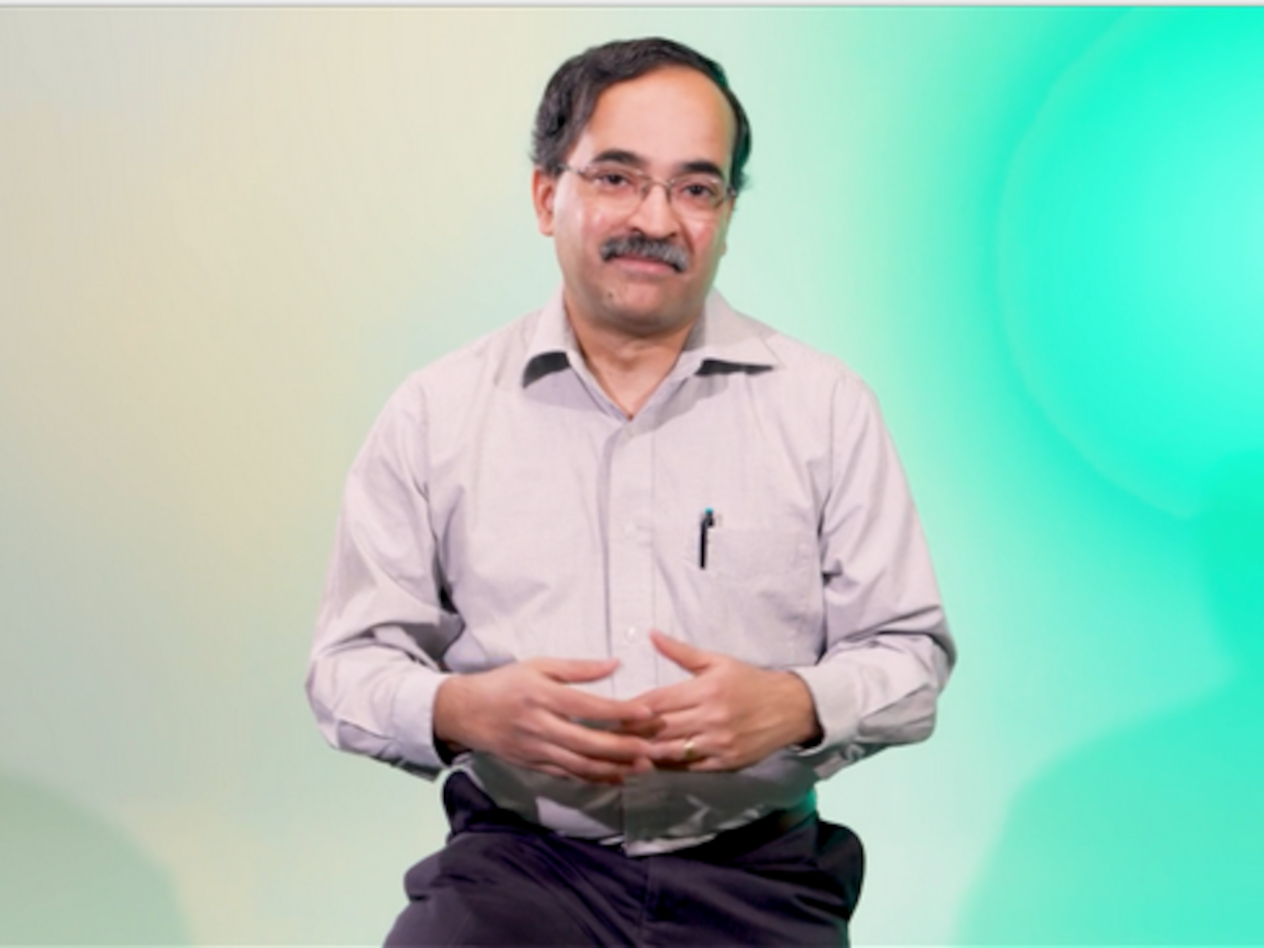
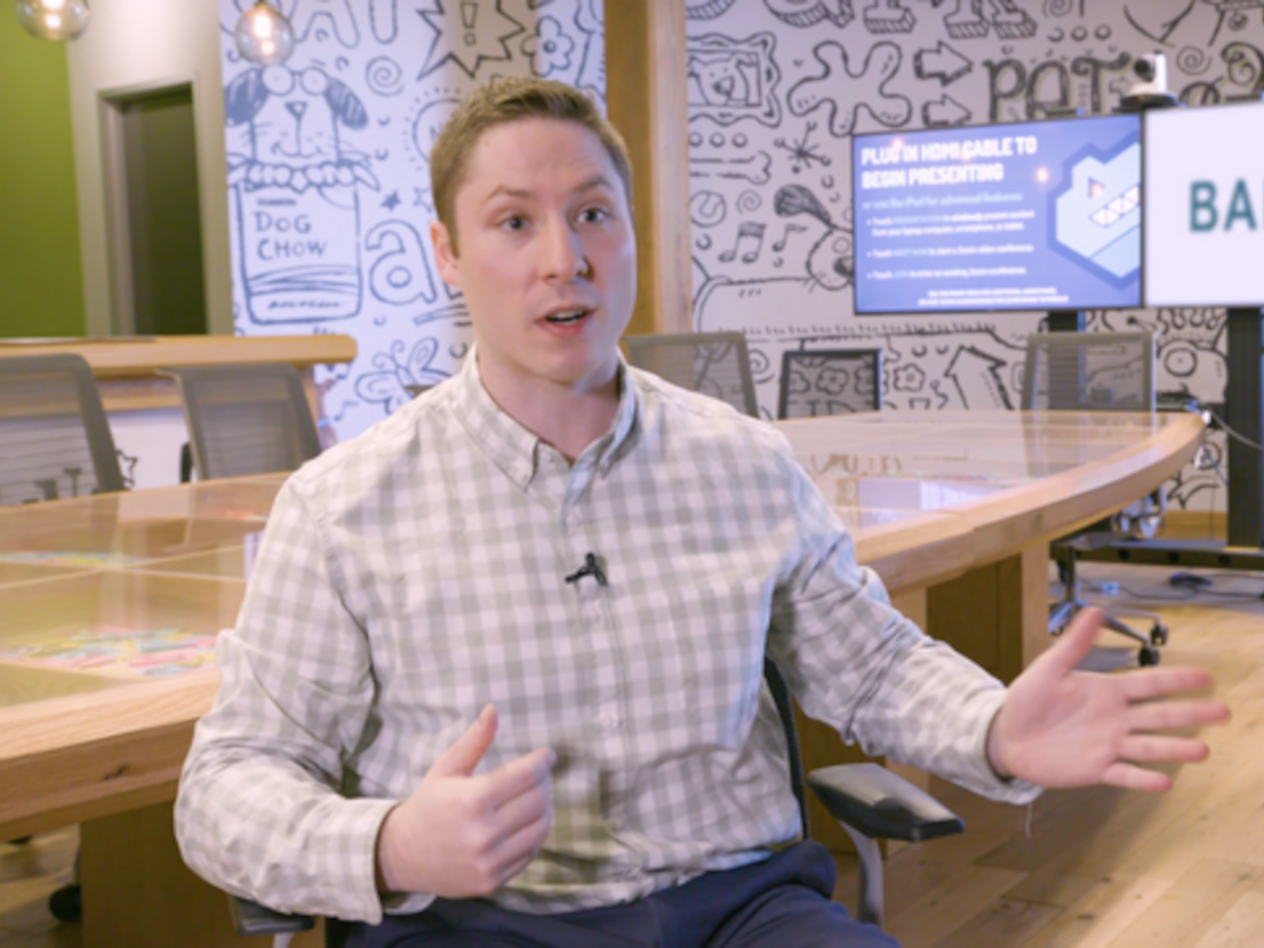

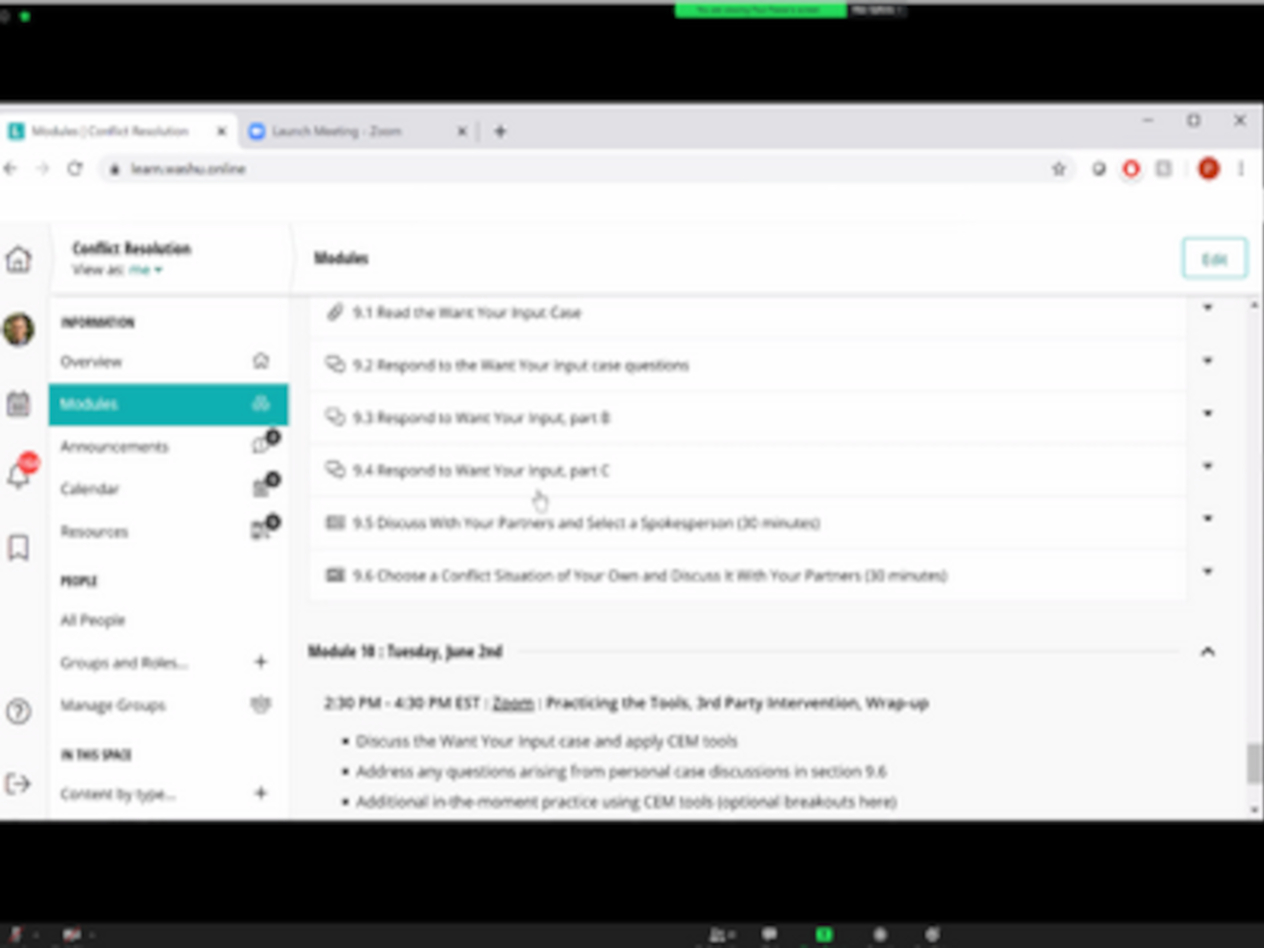
Media inquiries
For assistance with media inquiries and to find faculty experts, please contact Washington University Marketing & Communications.
Monday–Friday, 8:30 to 5 p.m.
Sara Savat
Senior News Director, Business and Social Sciences
